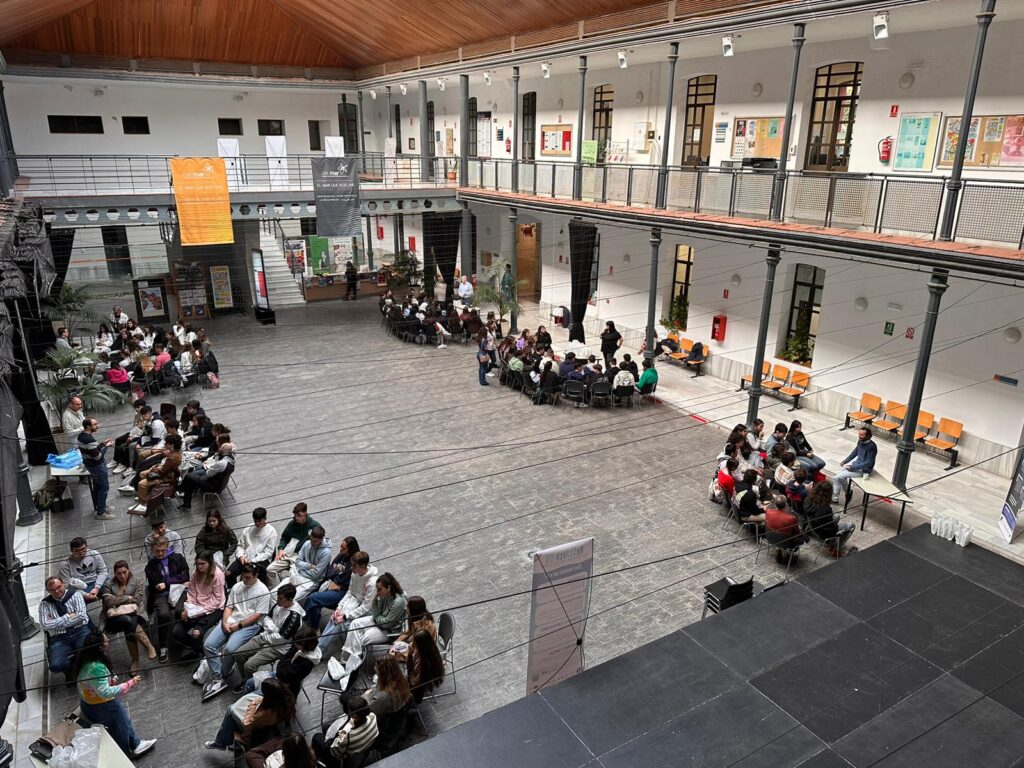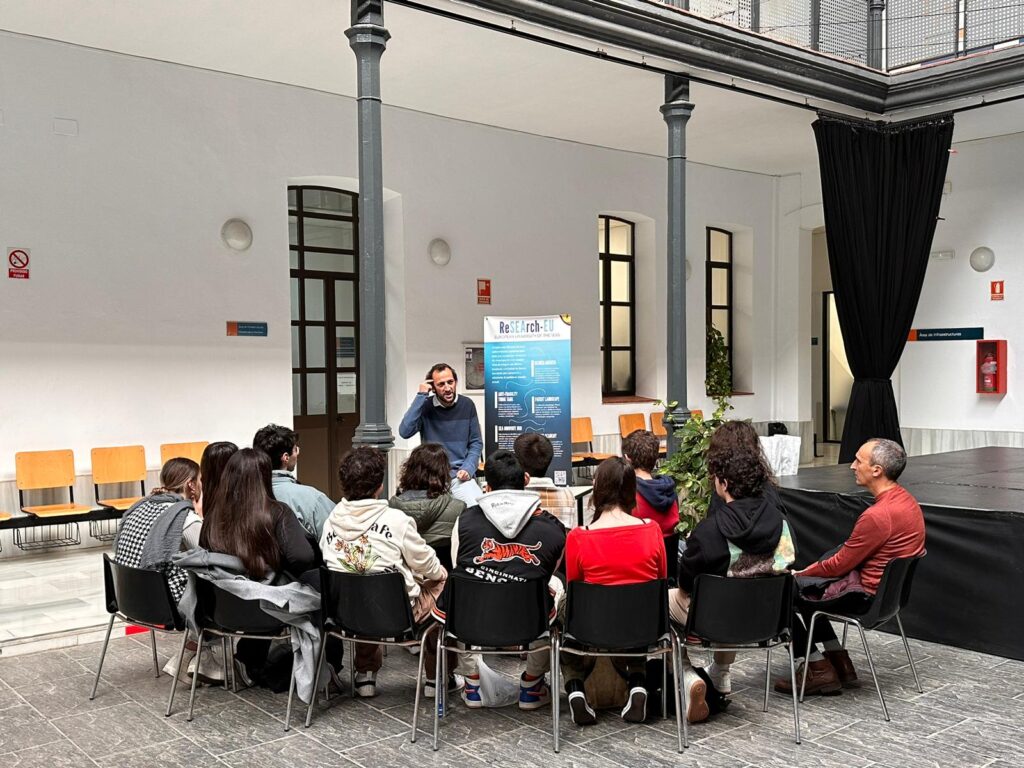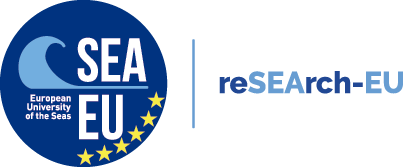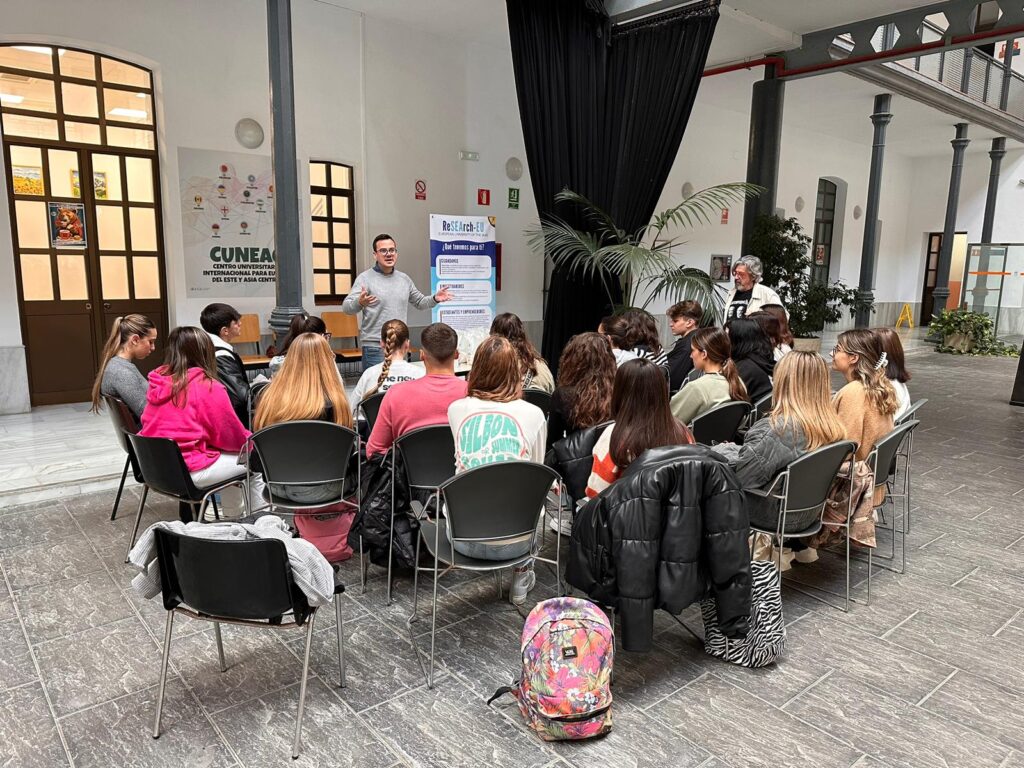The Unit for Scientific Culture and Innovation (UCC+i) of the University of Cadiz, in collaboration with reSEArch EU project and the Descubre Foundation organized the activity “Coffee with Science” on the Campus of Cadiz with 530 participants.
Café con Ciencia is part of the activities of the Science Week and is funded by the Ministry of University, Research and Innovation and the Spanish Foundation for Science and Technology – FECYT and in collaboration with the project reSEArch EU (European University of the Seas SEA-EU).

This initiative promotes, during two days and in shifts, meetings of university scientists with small groups in order to share experiences and bring the world of research to the youngest. Thus, each researcher sits down to have coffee and chat with the students to bring them closer to his professional career and the scientific work or research he develops, and then opens a time for questions with them.
Specifically, the UCA – in this edition – has installed thirty scientific tables, supervised by a researcher, where they deal with various scientific areas such as Earth Sciences, Zoology, Environmental Technologies, Public International Law and International Relations, Applied Physics; Historiographic Technical Sciences; Neurosciences, Cell Biology and Neuroscience, Marine and Environmental Sciences; Educational Sciences, Plastic Expression, Systems Engineering and Automation; Inorganic Chemistry, Nanomaterials Physics, Biotechnology, Basic Psychology, Behavioral Sciences, Analytical Chemistry, Mathematics, Medicine/Pediatrics, Applied Physics, Ecology; Physical Oceanography, Marine Ecology, Archeology, Psychology of Music or Entrepreneurship and Business Organization.
Among the topics, attendees can learn how to explore a territory from a drone’s view, the care of beaches and the impact of fishing discards, the challenges and opportunities of science in garbage, the human dilemma of maritime immigration in the Mediterranean on saving lives and protecting borders, the work in archives and libraries and its importance for history, the functions of cells in our body, the nano world in science, the war in Russia and Ukraine and international humanitarian law, climate change and the mobility of people, living in a sustainable society, learning to research, new technologies at the service of health, drawing from music, mathematics against cancer, biology and conservation of species such as sharks, as well as the engineering of Coasts and Ports and their scientific relationship, the scientific improvement of the natural parks of the Bay, the work of biologists in their environment, digital work in sites and entrepreneurship as a vocation.


